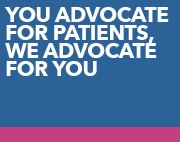Wisconsin AGD Testifies at Assembly Dental Therapy Hearing
 Wisconsin AGD President Louis C. Boryc, DDS, FAGD, testified before the Wisconsin Assembly Committee on Medicaid Reform and Oversight as it heard AB 81 related to the licensure of dental therapy. This is the second time Boryc has testified for this legislation on behalf of the Wisconsin AGD; the Senate Committee on Health and Human Services heard its companion bill, SB 89, in August 2019.
Wisconsin AGD President Louis C. Boryc, DDS, FAGD, testified before the Wisconsin Assembly Committee on Medicaid Reform and Oversight as it heard AB 81 related to the licensure of dental therapy. This is the second time Boryc has testified for this legislation on behalf of the Wisconsin AGD; the Senate Committee on Health and Human Services heard its companion bill, SB 89, in August 2019.The hearing lasted over five hours, drawing in a large crowd for the controversial bill. Many members from a Wisconsin dental therapy coalition of nearly 60 organizations joined to testify before the committee, while only a few opposed the legislation. The Wisconsin Dental Association, Wisconsin AGD and Marquette University, which houses the state’s only dental school, were the prominent three opposing entities in attendance offering public testimony for AB 81.
Unlike dental therapy bills that have been drafted or enacted in other states, Wisconsin’s AB 81/SB 89 lacks many crucial aspects for its intended purpose. The authors of the bill state that dental therapists in Wisconsin will result in an increase in access to oral healthcare, particularly in many rural areas across Wisconsin. Other states that have moved to authorize dental therapy with this same intention have required dental therapists to practice in underserved populations to some extent, such as on tribal land, in a Federally Qualified Health Center, on a percentage of publicly insured individuals, etc. Wisconsin’s bill holds none of these requirements.
Furthermore, Wisconsin’s legislation does not require an applicant for dental therapy licensure to be licensed in dental hygiene or complete supervised clinical practice once graduating from an educational program. This is uncommon, as states that have enacted dental therapy require anywhere from 500 to 2,000 supervised clinical practice hours after graduation.
Wisconsin has attempted to pass similar dental therapy legislation and failed. The state’s legislative session will adjourn March 26, meaning AB 81 and SB 89 must both pass with a majority vote through their respective committees and houses before then, or the bill will die. If the bill dies, AGD expects another attempt at the legislation in future sessions.
To learn more and take action on prominent issues, visit the AGD Advocacy webpage.
